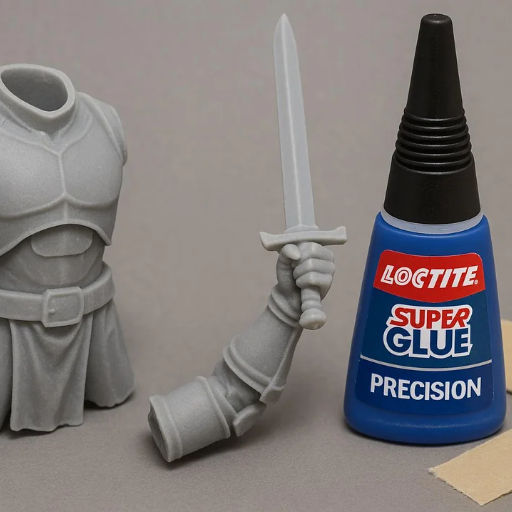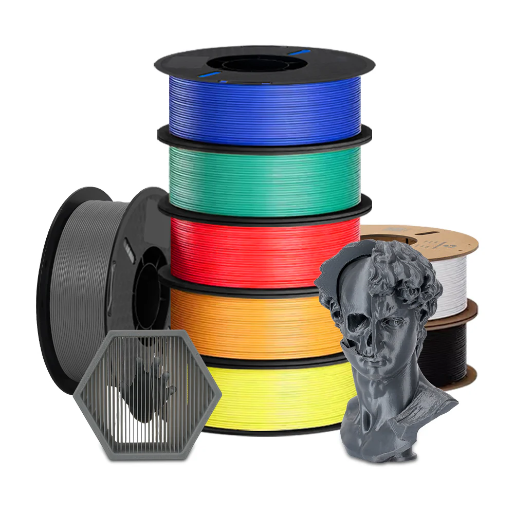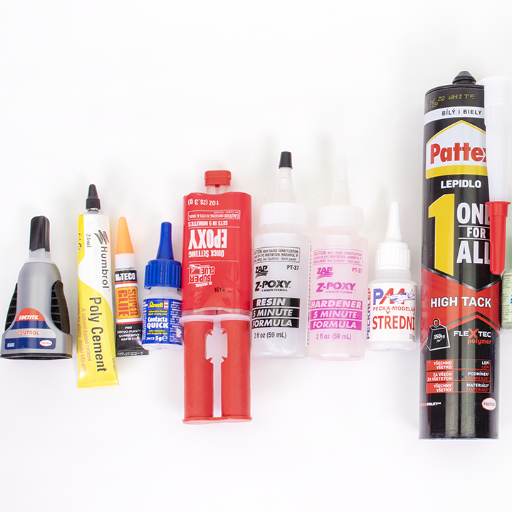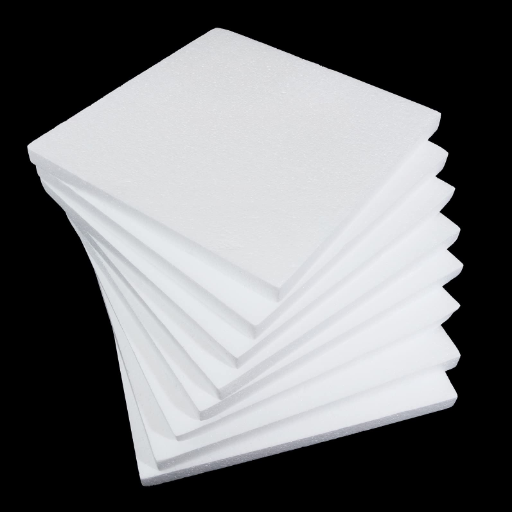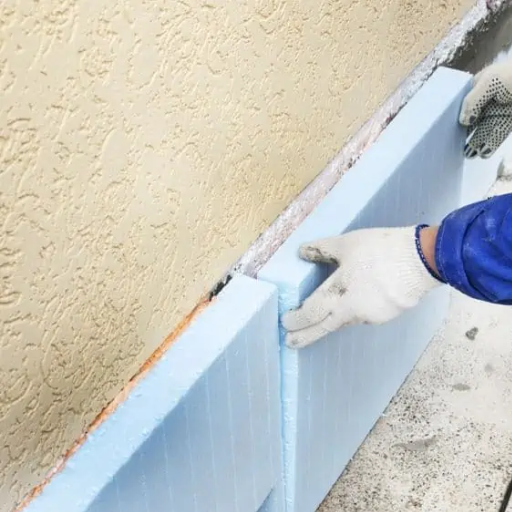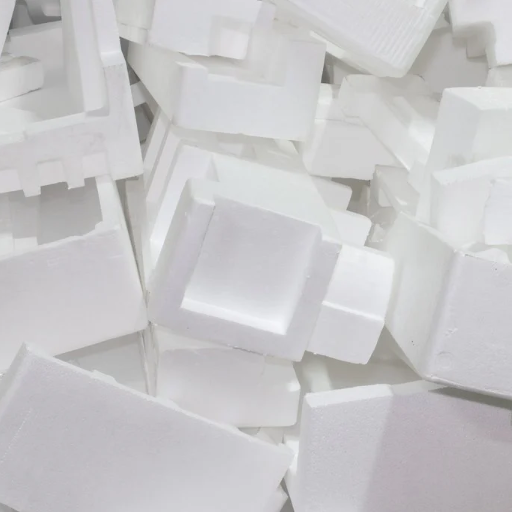As many of us know, super glue is one of the few adhesives capable of bonding materials quickly and efficiently. Its common use, however, is due to its strength and versatility. While it is not always the optimal choice for different types of applications. Do you require working with materials that need a flexible hold? How about an adhesive that endures extreme temperatures or even resists water? This article looks at different ways to substitute super glue and describes their individual characteristics and applications. Finding the right glue options will help both in construction projects and in repairing delicate items, as well as in dealing with difficult materials.
What Are the Alternatives to Super Glue?

- Epoxy Resin
Epoxy resin is an industrial-strength two-part adhesive consisting of a resin and a hardener. When mixed, the two components form an unbreakable bond. Epoxy resin is best suited for heavy-duty repairs as well as for water, chemicals and heat resistant use cases. It can also be used on metal, wood and ceramic materials.
- Polyurethane Glue
Also, Polyurethane glue fills the gaps on foam and works well with wood, metal, and plastic as well. And these particular attributes seal the deal: it is not only temperature resistant, but also waterproof. It’s great for everything that expands as it cures.
- Silicone Adhesive
Best match for flexible projects, silicone adhesive is waterproof, heat-resistant, and sticks well to smooth surfaces such as glass, ceramics, and metals. Still, silicone adhesive shines the most when it comes to sealing and mending items exposed to moisture, since it is smooth.
- PVA Glue
Used for woodworking and paper projects, polyvinyl acetate (PVA) glue is widely known in these fields. PVA glue sticks easily and also, with a satisfying result dry clear. In addition, it firmly binds calm substances such as wood, fabric, and cardboard.
These alternatives are reliable for different needs. Ensure the right option for every application. Always remember the specific material conditions before choosing an adhesive.
Why Consider Other Adhesives?
Choosing the right type of adhesive, especially in construction, is important in staying reliable, efficient, and achieving the desired results. While PVA glue and cyanoacrylate serve as sufficient multipurpose adhesives, specialized other adhesives may perform better as they are designed to meet some set standards. For example, construction-grade adhesives glue more efficiently than general adhesives when used on concrete or heavy metal materials. Other adhesives also excel in more specific tasks, for instance if the environment is exposed to high temperatures, heat-resistant epoxies are crucial. Solvent adhesives are best when used in weatherproofing to sustain extreme conditions regardless of the environment. Innovative technologies in adhesive formulations have developed non-toxic and eco-friendly options, which greatly improves formulated ethics without sacrificing quality. Selection of performance expectations along with substrate material and environmental factors will optimize the effectiveness of the selected adhesive solution.
What Makes Gorilla Glue a Stronger Bond?
Gorilla Glue Powder bonds excellently due to its proprietary polyurethane formula enhanced by curing expansion. The pores that are microscopic in all materials get filled during the process making the bond enduring and stronger. Furthermore, it also makes sure that wood, stone, metal, ceramics and certain types of plastics can be bonded, thus making it versatile for multiple applications. Tempered Gorilla glue can withstand higher and lower temperatures reliably allowing it to work in extreme weather. Independent tests and users have confirmed the strongest bond adhesive solution for professionals and do-it-yourself jobs.
Are There Better Options for Plastic Repair?
While assessing adhesives for plastic repairs, compatibility with existing materials, bond strength, curing time and resistance to environmental condition needs to be ticked off the check list. High-end cyanoacrylate glues, or super glues as most people refer to it, perform superbly on rigid plastics as they set powerful durable bonds within minutes. For flexible plastic materials, stress and temperature differentials make the gap-filling capability of epoxy-based adhesives excel, making them useful in difficult repair situations. Thus, these types of epoxy-based adhesives are exceptionally tough. Moreover, polyurethane adhesives are among the most versatile as they bond polyethylene and polypropylene plastics which are hard to bond. More recent developments using nanotechnology are particularly encouraging because they enhance strength down to the microscopic level and increase sustained dependability. Choosing the appropriate one is a matter of meeting the specific needs of the application, as no single adhesive works best for all kinds of plastic or repair conditions.
What Is the Best Glue for Wood Repairs?
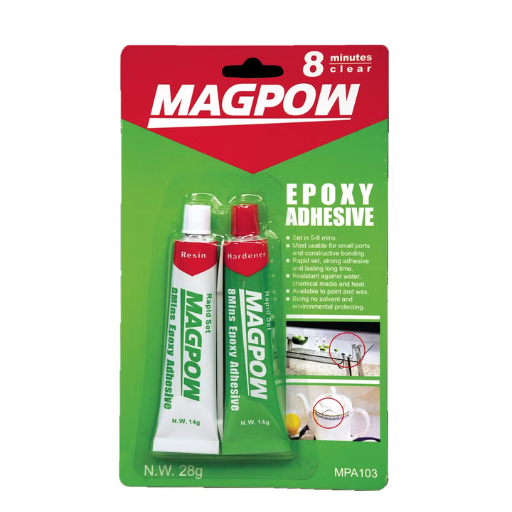
The answer to what is the best glue for wood repairs is different depending on how extensive the repair is and how the wood will be used after. For casual woodworking tasks inside the house, PVA glue also known as wood glue works great for ponding because of the simple application and friendly indoor conditions. For exterior works or places that receive moisture, epoxy adhesives or polyurethane glues are more appropriate since they are resistant to water and are strong in all weather conditions. To achieve the strongest bond possible, surfaces must be clean and strictly aligned before the adhesive is applied.
How Does Wood Glue Compare to Super Glue?
Super glue and wood glue have different applications which are perfectly suited for their use due to their varying chemical structures and bonding properties. An example of wood glue is the PVA-based types. It works best with porous materials, such as wood which allows it to seep into the fibers and bond strongly. This makes PVA useful for woodworking joints and assembly. Like many other PVA glues, it needs a certain amount of time when clamped to reach its full curing strength.
Super glue, or cyanoacrylate bonds, works especially fast and across a wide range of materials such as plastic, metal, and ceramic. This makes it a go-to for multi-material repairs. This is not as effective for wood-to-wood structural connections as it only forms a surface bond instead of embedding inside the wood fibers. Brittle once cured, these bonds will not endure significant stress or change in the environment like wood glue will. This may not be ideal for mounting wood templates as super glue will succumb to the weight over time and lose its adhesive strength. Knowing the project requirements and the properties of the material is important so that the correct adhesive can be chosen.
What Is the Cure Time for Different Wood Adhesives?
Different types of wood adhesives cure in different periods of time due to temperature and humidity levels in the environment. A case in point is PVA glue which takes anywhere from 20 to 30 minutes but does not fully cure for bond strength until 24 hours. Though epoxy adhesives set much quicker, often 30 minutes, once again bond strength can vary with the formulation in question needing anywhere from 12 to 72 hours. Known for being multi-purpose and water resistant, polyurethane glue cures faster than the rest, around 24 hours, but can be unclamped after 30 minutes to an hour. Commonly referred to as superglue, cyanoacrylate adhesives take seconds to set, achieving functional strength almost instantly, but don’t technically fully cure for up to 24 hours. Manufacturer recommendations need to be followed, otherwise the bond can be structurally compromised.
How Do Epoxy and Super Glue Differ?
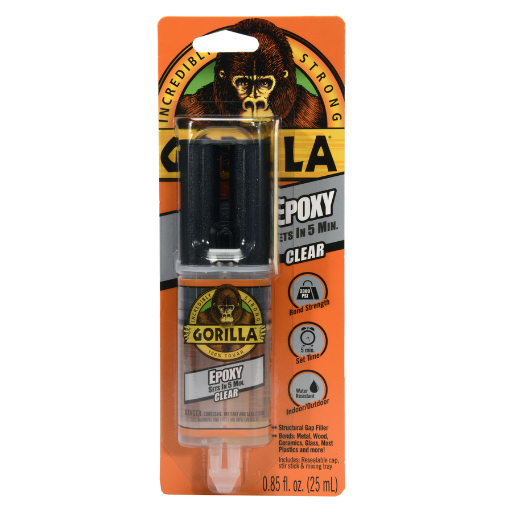
The main difference between epoxy and super glue is the composition and the application process. Epoxy is a type of adhesive made from the resin and a hardener which always has to be mixed. Epoxy takes longer to cure, thus is suitable for structural projects and tasks that involve heavy-duty bonding. Super glue is the best-known representation of cyanoacrylate and is a one-pack adhesive that cures instantly (once it comes in contact with water) making it an ideal glue for small, precise, and less demanding repairs. Also, epoxy has far better heat, chemical, and weather resistance than super glue which is used for quick and non-structural applications.
What Are the Benefits of Using Epoxy?
There are various benefits epoxy can offer which comes in handy in different fields. Below is a breakdown of its major advantages:
- Superior Bonding Strength
Epoxy works excellently with things like material, plastics, wood, metals, and ceramics, making it one of the strongest materials out there. This makes it handy both for structural and un-structural purposes.
- Durability and Longevity
Epoxy works best for projects which require a robust structure because it offers superior resistance to wear, deterioration and other forms of damage.
- Thermal and Chemical Resistance
Being a wise choice for industrial purposes spatial is withstanding extreme temperatures, acids, oils, solvents, and strenuous chemicals. One of the many traits of epoxy is its infamous resilience to extreme temperatures.
- Waterproof and Weather-Resistant
Repairing things with epoxy guarantees the structure will become moisture proof, maintaining constant temperature and other relevant factors, promising no damage will happen surfaces bound with environmental elements.
- Versatility in Application
Custom tailored epoxy is great for adhesives, coating, and casting. Industrial grades are sold for manufacturers while nonindustrial grades are more suited for DIY enthusiasts.
Each of these benefits explodes the high importance of epoxy in industrial and daily use and proves its unmatched capabilities in comparison to other adhesives. With the right application methods, epoxy provides reliable and strong outcomes.
What Is the Best Epoxy for Strong Bonds?
Choosing the right epoxy to create a bond will vary on factors like parts being joined together, surrounding conditions, and even the requirements of the task at hand. Industrial epoxies with high tensile strength, specifically metal to metal bonds, are often recommended for those with a PSI rating of over 3000. However, plastics and composite materials require more flexible specialty formulations that deal with more specific unique problems such as thermal expansion and low surface energy.
Other factors include temperature resistance and curing time. For projects in extreme environments, harsh automotive and aerospace applications, epoxies with -50°F and 500°F resistance are the best choices. Fast-curing epoxies are convenient, but slow-curing options tend to offer greater bond strengths.
Selecting an appropriate epoxy while understanding the project’s requirements will guarantee maximum performance, safety, and durability. New advanced epoxy products are now available on the market that incorporate impact resistance, UV stability, or chemical resistance enhanced additives which broadens their use and functionality across different industries.
Is There a Solvent-Free Alternative to Super Glue?
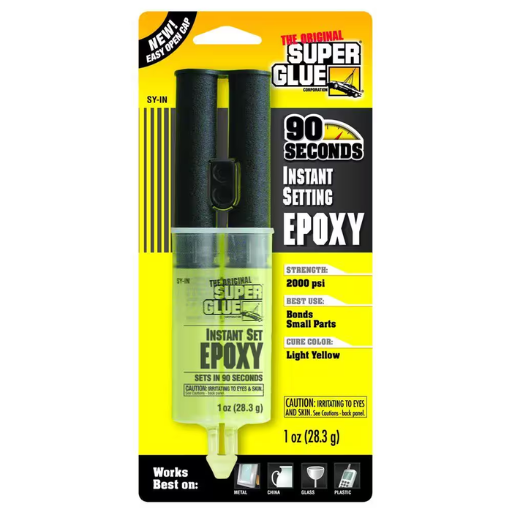
Certainly, there are no-solvent options for super glue alternatives. One example is cyanoacrylate adhesives branded as “solvent-free” which possess similar bonding speed as super glue and do not contain hazardous solvents. Moreover, epoxy adhesives, especially the two-part systems, are usually free of solvents and provide strong and durable bonds. Such products are helpful in scenarios where the reduction of exposure to VOCs is preferred. Confirm product details to make sure they suit your materials.
What Are the Advantages of Solvent-Free Adhesives?
Because of their innovative formulations and green reputation, solvent-free adhesives can be advantageous to many industries. Here are the key advantages:
- Reduced Environmental Impact
The use of solvent-free adhesives technologies reduces the emissions of volatile organic compounds (VOCs) which helps in improving the air quality and ecological safety. This also enables compliance with strict environmental policies REACH and EPA regulations.
- Improved Worker Safety
Adhesives without harmful solvents reduce the risk of toxic gases and chemicals, greatly improving the safety of the working environment. There is less dependence on ventilation, protective gear, and ventilation systems which greatly reduces operational expenditures.
- Enhanced Performance Characteristics
In cap areas, solvent-free adhesives dominate in strength, chemical resistance, and durability over solvent-based options. Moreover, they perform well on a variety of materias including metals, plastics, and ceramics even under demanding environmental conditions.
- Energy Efficiency
Unlike the adhesive systems that rely on solvents, these did not require heating which makes the whole process less energy-consuming. They also cure at room temperature which adds to their affordability and energy saving potential.
The latter reasons justify why consumers and industries are starting to shift to solvent free adhesives. Not only do they make the work processes more refined, but they also make it easier to achieve goals set David-sustainable development objectives.
Which Solvent-Free Glue Works Best for Crafts?
In crafting, when choosing a solvent-free adhesive, the materials, the strength of the bond, and the application methods should be tailored to the user’s needs. To this end, some of the best bond solvents lack glue composites, polyvinyl sulphate (PVA) glue, silicone-based adhesives, and polyurethane glues.
Due to the water-based structure, PVA glue resin is ideal for paper, wood, and fabric projects as it is easy to use and creates a powerful bond. These attributes make it non-toxic, safe for projects of any scale, and dries clear. Silicone-based adhesives are also quite effective for glass, metal, or ceramic materials since they have good flexibility and adhesion without any solvents. Where extremely durable bonds are required, polyurethane glues are perfect. They’re unbeatable for sturdier crafts and cure through moisture in the air, working well with plastics, wood, and foam.
What Are the Best Adhesives for Small Repairs?
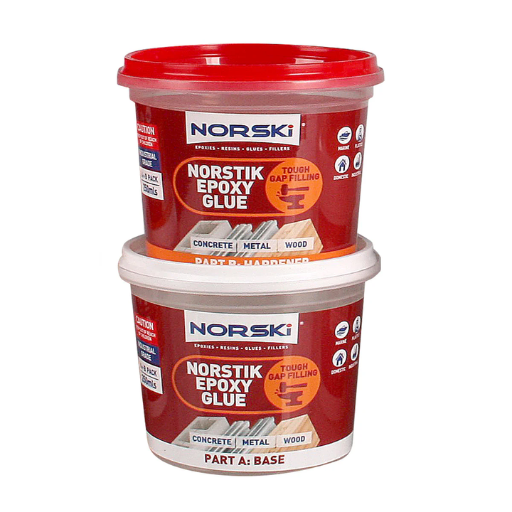
Super glue (Cyanoacrylate glue) is the best adhesive for minor household repairs. Household super glue can effectively bond together most household items at record speeds. For more flexible construction materials like rubber or fabric, a specialized rubber adhesive or fabric glue will yield better results. PVA glue is best for wood and paper surfaces because it’s porous and penetrates while bonding. Always make sure to check of the guides recommend for the materials at hand.
How to Choose the Right Glue for Quick Fixes?
Selecting glue for quick fixes requires considering the material, environment of application, and dry time. For non-porous materials glass or metal, super glue bonds strongly and firmly while dry times are instant with no waiting needed. Such adhesives work best in dry environments and are very effective when a small amount is needed. On the other hand, epoxy adhesives are better for repairs that incur high stress and heat as they make weaker bonds compared to epoxy.
Flexible adhesives such as fabric glue or silicone ought to be used for household surfaces such as leather which require movement. Outside of these flexible adhesives, hot glue guns are multi-purpose tools for quick applications on wood, plastic, and plaster projects. Apart from ensuring best results, hot glue must be used in haste as it works best with speed. Finally, best adhesion performance ensures unchecked curing times, temperatures and bonding non-specified materials.
What Is the Easiest Adhesive for Small Projects?
For low-scale projects, the simplest adhesive might differ based on the item being joined and the precision involved. If the materials are lightweight like paper, cardboard, or fabrics, then glue sticks can be a handy option, since these avoid mess while enabling easy application. On the other hand, double-sided adhesive tapes can instantly bond objects without the waiting period for drying, making them useful in craft applications as quick solutions. For stronger adhesion, all-purpose craft glues such as polyvinyl acetate (PVA) are also dry and can be used on a wide variety of items. All of the options mentioned offer ease of use and require little to no preparation. With these adhesives, the user’s time is minimized while still accomplishing small tasks.
Reference Sources
-
Biodegradable Polymer Adhesive (P3HB)1 2: Researchers at Colorado State University developed a biodegradable adhesive polymer, P3HB, which outperforms commercial adhesives like Gorilla Glue. It is tunable, reusable, and can bond materials like aluminum, glass, and wood. The adhesive is biodegradable in various environments, including landfills and oceans.
-
Tuning Polymer Microstructure for Adhesion3: By manipulating the microstructure of the natural polyester P3HB, researchers achieved adhesive properties stronger than super glue. The optimal microstructure (syndio-rich) provided a balance of crystallinity and flexibility, enabling strong bonding.
Frequently Asked Questions (FAQs)
Q: What are some alternatives to super glue?
A: Some high-performance alternatives to super glue include JB Weld, Loctite, and Gorilla Glue. Each of these glue products offers unique properties that may outperform super glue for specific applications.
Q: How does JB Weld compare to super glue?
A: JB Weld is a two-part epoxy that provides a stronger bond than super glue. It is ideal for heavy-duty repairs and can withstand high temperatures, making it suitable for a wider range of materials.
Q: Can I use glue and Gorilla Glue in a hot environment?
A: Yes, Gorilla Glue is designed to withstand a hot environment. However, ensure the surfaces are clean and slightly damp for optimal adhesion. Unlike cyanoacrylate, it takes longer to cure but offers a flexible bond.
Q: Are there solvent-free options available for adhesive sealants?
A: Yes, there are many solvent-free glue products that are easier to use and safer for indoor applications. These options are ideal if you want to avoid the fume associated with traditional adhesives.
Q: How long does super glue take to harden compared to JB Weld?
A: Super glue typically takes seconds to work, while JB Weld requires several hours to cure fully. If you need a quick fix, super glue is suitable, but for stronger applications, JB Weld is recommended.
Q: Can I apply UV light to speed up the curing of certain adhesives?
A: Yes, some adhesives are designed to be cured with a small UV light. This method can significantly reduce the time to work, providing an instant bond for specific glue products.
Q: What should I wear when using strong adhesives like JB Weld?
A: When using strong adhesives, it is advisable to wear gloves to protect your skin. Some adhesives may irritate skin upon contact, so safety precautions are essential.
Q: Is super glue suitable for bonding plastics including PVC?
A: Super glue is also effective for bonding plastics, but for PVC specifically, a cement for plastic may provide a stronger, more durable bond. Always check compatibility before use.
















